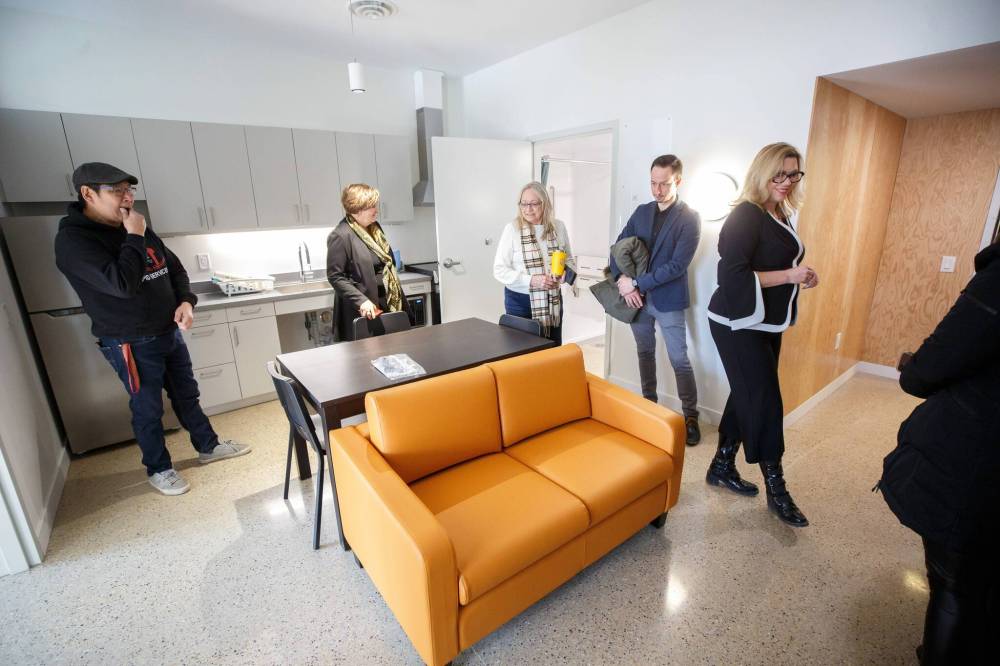Going back to the office at city hall
Advertisement
Read this article for free:
or
Already have an account? Log in here »
To continue reading, please subscribe:
Monthly Digital Subscription
$0 for the first 4 weeks*
- Enjoy unlimited reading on winnipegfreepress.com
- Read the E-Edition, our digital replica newspaper
- Access News Break, our award-winning app
- Play interactive puzzles
*No charge for 4 weeks then price increases to the regular rate of $19.95 plus GST every four weeks. Offer available to new and qualified returning subscribers only. Cancel any time.
Monthly Digital Subscription
$4.99/week*
- Enjoy unlimited reading on winnipegfreepress.com
- Read the E-Edition, our digital replica newspaper
- Access News Break, our award-winning app
- Play interactive puzzles
*Billed as $19.95 plus GST every four weeks. Cancel any time.
To continue reading, please subscribe:
Add Free Press access to your Brandon Sun subscription for only an additional
$1 for the first 4 weeks*
*Your next subscription payment will increase by $1.00 and you will be charged $16.99 plus GST for four weeks. After four weeks, your payment will increase to $23.99 plus GST every four weeks.
Read unlimited articles for free today:
or
Already have an account? Log in here »
Hey there, time traveller!
This article was published 30/10/2023 (807 days ago), so information in it may no longer be current.
A surefire way to create a rancorous workplace debate in 2023 is to mention three magic words: work from home.
WFH has become a commonplace acronym in office towers, small businesses and government offices since the COVID-19 began spreading worldwide in March 2020.
The virus was one of the most contagious scientists had encountered, and many employers in 2020, when faced with no legitimate medical method to combat the contagion, told staff to work from home to prevent outbreaks that could be lethal to workers and businesses.

Governments followed these directives too, and civil servants around the world began serving the public from home offices and kitchen tables rather than from their office cubicles.
These decisions revolutionized how people work. Opinions about working from home vary, as do the results of studies into how productive employees have been away from their desks.
Many who work from home didn’t miss the frustrating commutes and welcomed working in more relaxed surroundings. New software emerged to bridge the communication gap between offices and home offices.
Others missed their office friends and loathed the solitude of their new work circumstances. Some found working from home became living at work, tipping the work-life balance in a negative way.
Meanwhile, doctors, nurses, first responders and people in occupations that can’t be done from home have no choice but to soldier on at their usual posts.
The work-from-home trend has continued at many businesses and governments despite the advent of ground-breaking vaccines that have lessened the COVID-19 threat.
That includes the City of Winnipeg. More than 250 of its managers continue to work from home, at least part time, while supervising staff who toil at city hall, including 11 who supervise staff who have daily contact with the public.
Two city councillors, Janice Lukes and Evan Duncan, want the work-from-home option curtailed significantly or halted altogether.
Lukes says some managers aren’t monitoring their staff as closely as they should and she’s received complaints from the public that they’ve been unable to reach staff and has struggled to contact them herself.
“We’re working for the public here. The public wants to see accountability. They want to make sure that their tax dollars and their investment into Winnipeg is being demonstrated in good delivery of services and (these are) quick and responsive,” Duncan says.

MIKE DEAL / WINNIPEG FREE PRESS
Janice Lukes is one of the Winnipeg city councillors who wants city employees back in their offices.
Michael Jack, the city’s chief administrative officer, says he’s received no complaints about worker productivity and said staffing the 311 service has become easier since workers can receive the calls at home.
He is correct when he says there’s more to managing people than looking over their shoulders while they work, but there’s more to city hall’s work-from-home debate than office efficiency.
Downtown Winnipeg was already struggling when the pandemic emerged in 2020.
The number of vacancy signs dotting the city’s core has grown noticeably in the past three years as thousands of downtown office workers, including those from city hall, no longer frequent the businesses, restaurants and entertainment venues as they once did.
Winnipeg’s Downtown Recovery Strategy, a program that involves the City of Winnipeg, Downtown Winnipeg BIZ, as well as other business and government organizations, touts new investments, grant programs and marketing strategies on its website as a way to revitalize the Portage and Main area, but it also needs downtown workers to help any revitalization program succeed.
That includes city hall workers and managers, and if they want Winnipeggers to buy into a better heart of the city, they need to buy into it too.




